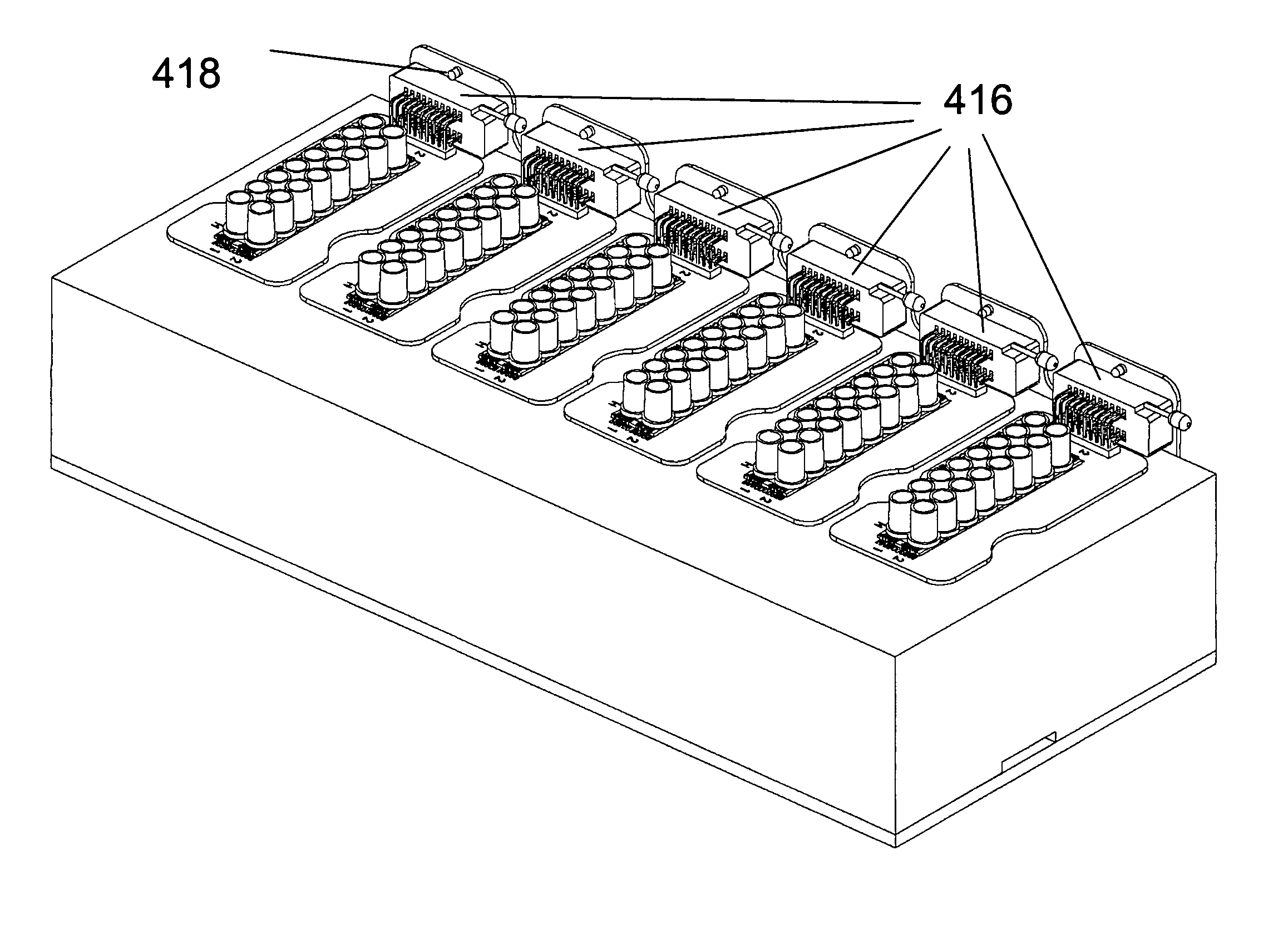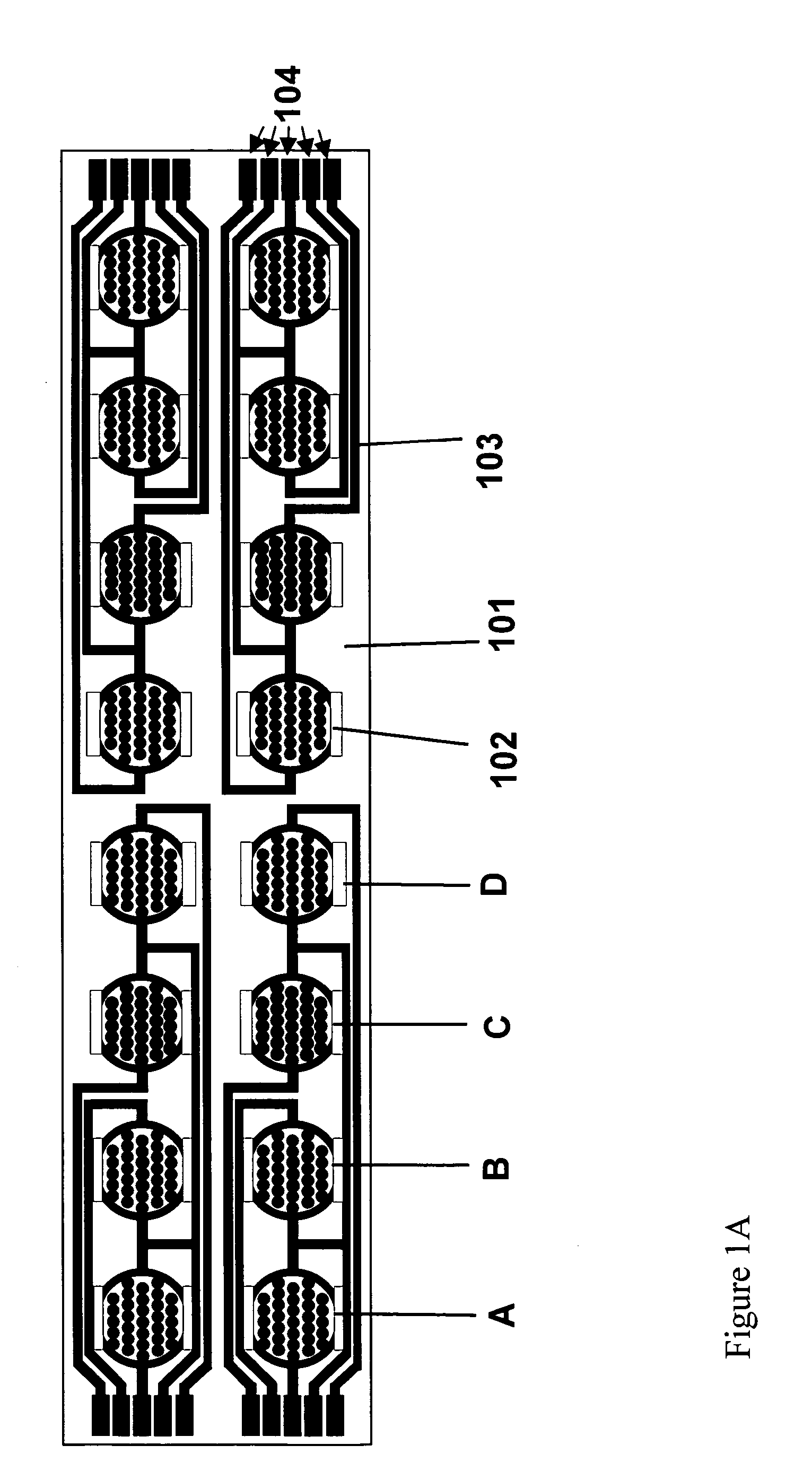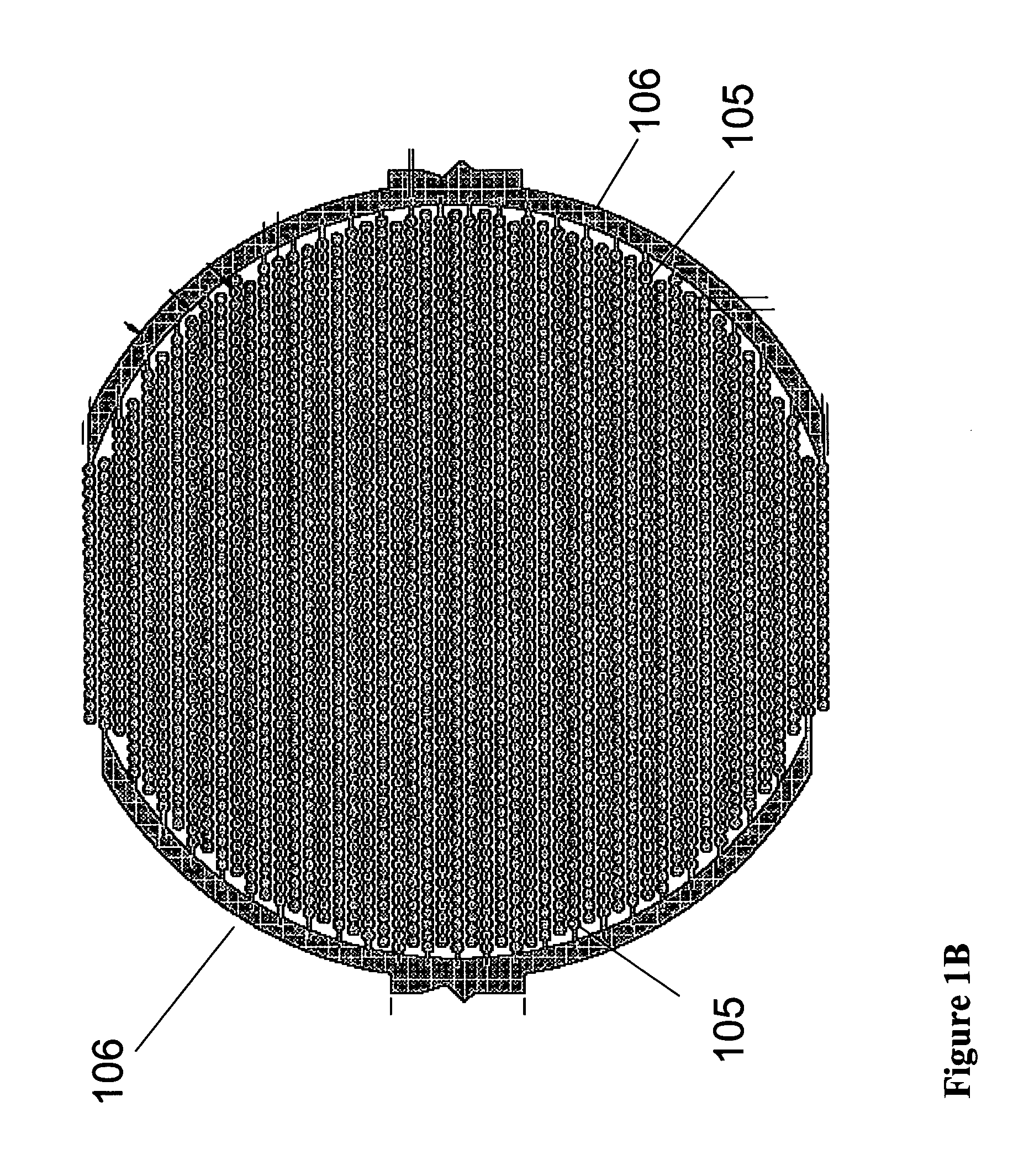Real time electronic cell sensing systems and applications for cell-based assays
a cell-based assay and electronic technology, applied in the field of cell-based assays, can solve the problems of limiting the time resolution and the number of time points of time-dependent cytotoxicity studies, and ensuring adaptability to high-throughput analysis
- Summary
- Abstract
- Description
- Claims
- Application Information
AI Technical Summary
Benefits of technology
Problems solved by technology
Method used
Image
Examples
example 1
[0366]As an example, we describe here the use of the use of a cell-substrate impedance monitoring system of the present invention to measure and monitor the morphological changes that occur as a result of IgE-mediated stimulation of RBL-2H3 cells (ATCC) in the presence or absence of an antigen. The cell-substrate impedance monitoring system has a device station that can engage 6 16× devices as depicted in FIG. 4. It also has an impedance analyzer, and software that directs impedance measurement-and recording and analysis of impedance data.
[0367]RBL-2H3 cells were seeded in the 16× device chamber (depicted in FIG. 2) at 20,000 cells / well and the attachment and growth of the cells in the 37° C. tissue culture incubator were monitored in real-time using the cell-substrate monitoring system. After 22 hours mouse monoclonal anti-dinitrophenyl (DNP) antibody (Clone SPE-7, Sigma) was added at final concentration of 1 microgram / mL. As a control, a non-specific mouse IgG was added at a final...
example 2
[0370]The following example is provided to show how a real-time cell electronic sensing system and methods can be used in real-time monitoring of IgE-mediated mast cell activation. The methods and devices of the present invention are not limited to those described in the Examples. Indeed, within the scope of the present invention, there are other specific methods and approaches to conduct assays for monitoring IgE-mediated mast cell signaling and activation.
Introduction
[0371]The work presented here describes an assay for IgE-mediated mast cell activation using measurements of cell-substrate impedance. The method is based on quantification in real time of the morphological, cytoskeletal and cell adhesion changes that arise as a response to multivalent antigen aggregation of the IgE-Fc(epsilon)RI complex on the surface of mast cells. Because the electronic assay readout relies on morphological, cytoskeletal and adhesive dynamics, which are intrinsic mast cell responses to the antigen ...
PUM
| Property | Measurement | Unit |
|---|---|---|
| real time | aaaaa | aaaaa |
| concentrations | aaaaa | aaaaa |
| length | aaaaa | aaaaa |
Abstract
Description
Claims
Application Information
 Login to View More
Login to View More - R&D
- Intellectual Property
- Life Sciences
- Materials
- Tech Scout
- Unparalleled Data Quality
- Higher Quality Content
- 60% Fewer Hallucinations
Browse by: Latest US Patents, China's latest patents, Technical Efficacy Thesaurus, Application Domain, Technology Topic, Popular Technical Reports.
© 2025 PatSnap. All rights reserved.Legal|Privacy policy|Modern Slavery Act Transparency Statement|Sitemap|About US| Contact US: help@patsnap.com



